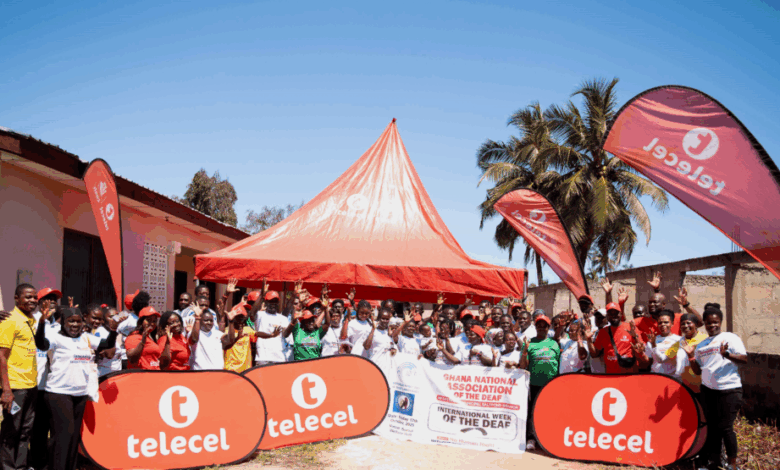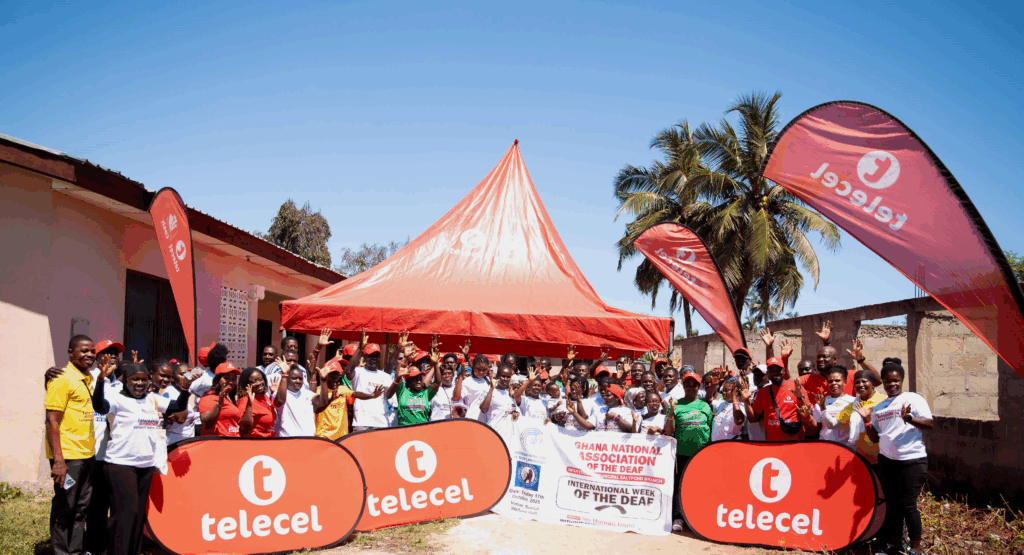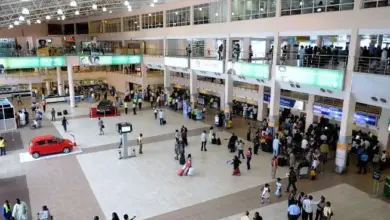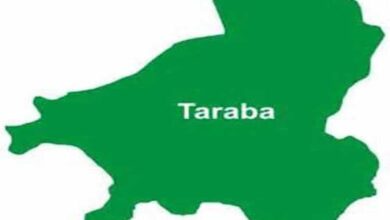Telecel Ghana advocates for basic sign language in education and public services


Telecel joined the Deaf communities in the Central Region to mark International Week of the Deaf.
Telecel Ghana has called for the mainstreaming of sign language studies in education and public service delivery to promote inclusive communication and equal access for the Deaf community.
The call came during this year’s International Week of the Deaf celebration organised by the Mfantseman chapter of the Ghana National Association of the Deaf under the global theme ‘No Human Rights Without Sign Language.’
The colourful event, held in Saltpond, started with a health walk through the principal street and brought together members of the Deaf community from five district chapters in the Central Region, including Ajumako, Asikuma and Cape Coast, along with officials from the Department of Social Welfare and Community Development, local assembly representatives, and corporate partners.
Speaking on behalf of Telecel Ghana, Customer Operations & Experience Centre Manager, Rita Adiase, said the inability of Deaf persons to access education, healthcare, and public services due to communication barriers is a major concern that needs urgent national attention.
“We need the Ministry of Health to ensure that hospitals and clinics have interpreters or staff who can sign.
“We need television stations to provide consistent sign interpretation on news and public messages. And we need employers across Ghana to train and hire more Deaf professionals.”
Telecel Ghana used the opportunity to reaffirm its commitment to inclusion through its Super Care initiative, launched in 2016 to provide accessible customer service for Deaf and hard-of-hearing customers.
The service allows users to dial *494# and connect with agents, many of them Deaf professionals, via video or WhatsApp calls in sign language.
The telco is partnering with universities to recruit graduates with disabilities into its workforce and continues to organise sign language training sessions for its staff as part of its annual CARE Month activities.
The Department of Social Welfare at the event also called for the employment of sign-language-trained personnel and interpreters across schools, hospitals, and public institutions.
Officials said this would ensure fair access to essential services for the Deaf community and help close long-standing communication gaps.
Leaders of the Mfantseman Association of the Deaf praised Telecel Ghana for its continuous support to the Deaf community and urged other corporate bodies to emulate its example by creating job opportunities for Deaf professionals and supporting advocacy for inclusion.
Before the celebration in Saltpond, the General Manager of Commercial Operations, Mercy Dawn Akude, and the CEO, Patricia Obo-Nai, joined the national celebration of the International Week of the Deaf in Accra, where they presented a projector and screen, laptop, and large-screen TV to the Ghana National Association of the Deaf (GNAD) to support its advocacy and public education initiatives.
Telecel Ghana also participated in a media advocacy forum, lending its voice to the call for a national policy to institutionalise sign language interpretation in the dissemination of all public information. The forum also recommended the adoption of subtitling in broadcasting television content to ensure accessibility for the Deaf community.
Throughout the month, Telecel extended its SuperCare service to social media, offering followers short tutorials in basic sign language. In addition, the telco trained its staff in basic sign language skills, reinforcing its commitment to building an inclusive workplace.
Ghana currently lacks comprehensive legislation mandating sign language interpretation across schools, government communications, and public media.
This situation means millions of Deaf people in Ghana are at a disadvantage in education, employment, and civic participation.
According to the 2021 Population and Housing Census, there are over 211,000 Deaf and hard-of-hearing individuals and over 470,000 with various degrees of hearing loss across Ghana.
Without sign language, this growing population of Deaf people are denied access to information, services and overall quality of life.
DISCLAIMER: The Views, Comments, Opinions, Contributions and Statements made by Readers and Contributors on this platform do not necessarily represent the views or policy of Multimedia Group Limited.
DISCLAIMER: The Views, Comments, Opinions, Contributions and Statements made by Readers and Contributors on this platform do not necessarily represent the views or policy of Multimedia Group Limited.
Source link




